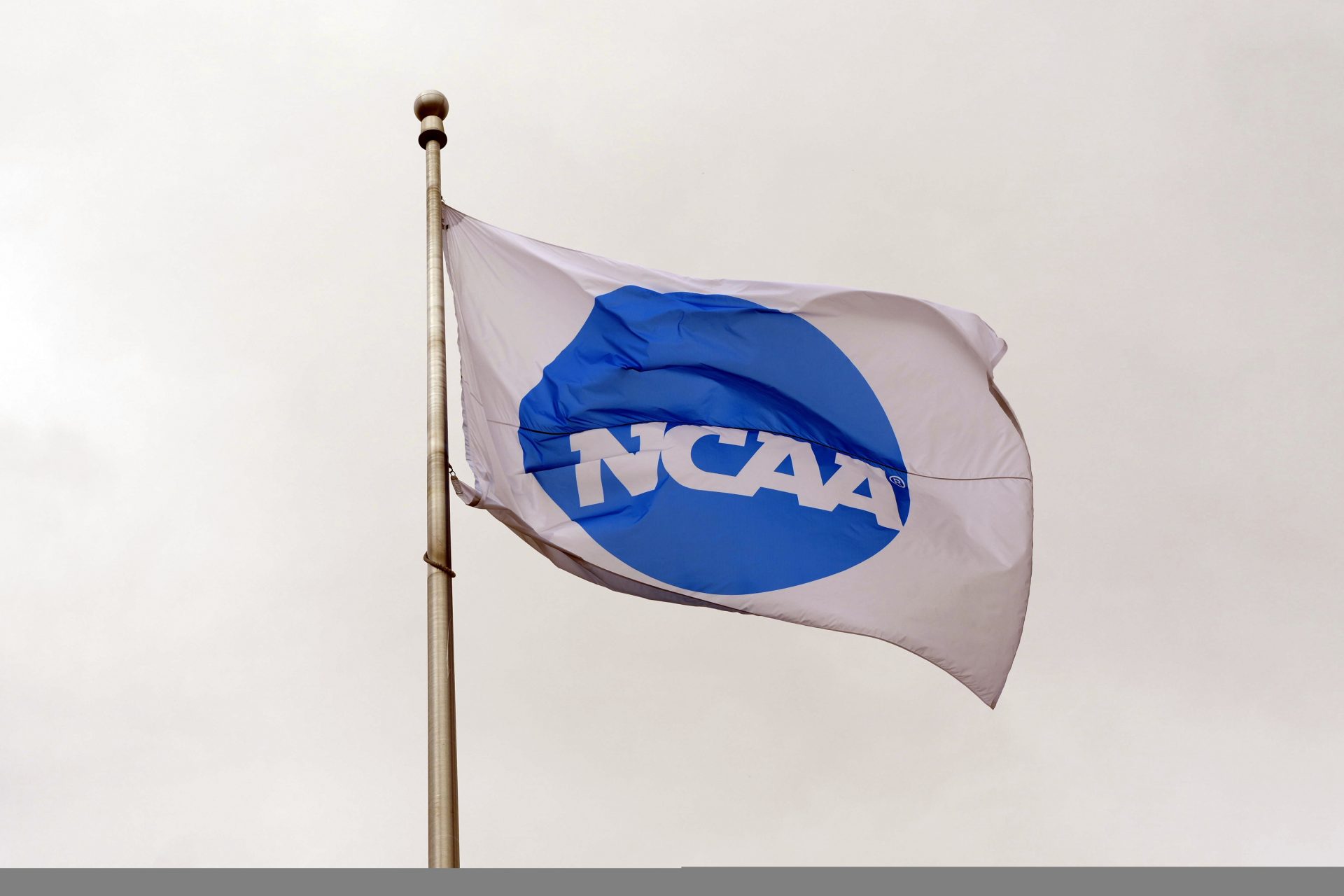Playing collegiate sports isn’t just about being an athlete. There are academic requirements prospective players must meet, as well as off-field parameters to stay within. Here is what college football players must do to reach and maintain their NCAA eligibility.
Everything You Need To Know About NCAA Eligibility for College Football
During the COVID-19 pandemic, the NCAA temporarily eased initial eligibility requirements by removing standardized testing — that change is now permanent. Here are the updated academic standards student-athletes must meet to be eligible to practice, compete, and receive an athletics scholarship at the Division I level:
- Earn 16 NCAA-approved core-course credits using pass/fail grades in eight academic semesters or four consecutive academic years.
- English: four years
- Math (Algebra 1 or higher): three years
- Natural/Physical Science (including one year of lab, if offered): two years
- Social Science: two years
- Additional Courses
- English, Math or Science: one year
- English, Math, Sciences, Foreign Language, Comparative Religion, or Philosophy: four years
- Earn a minimum 2.3 core-course GPA.
- Have a high school counselor upload the final official transcript with proof of graduation to the Eligibility Center account.
The only difference between Division II programs is that the core-course GPA can be as low as 2.2. Division III programs are responsible for setting their own academic eligibility rules, but athletes who meet the DI/II standards typically meet them.
The NCAA also has amateurism rules in place to “ensure that student-athletes do not receive compensation or benefits that could jeopardize their amateur status.” The rise of name, image, and likeness (NIL) deals has certainly altered the landscape, but these are the listed examples of situations that may impact a prospective student-athlete’s amateur status:
- Having received prize money (beyond participation reimbursement).
- Signing contracts or receiving benefits from agents.
- Receiving money for promoting products or services.
- Making money using their athletic ability or fame.
- Delaying full-time collegiate enrollment to compete in organized sports.
KEEP READING: FHSAA Appoves NIL for High School Student Athletes
Understanding NCAA eligibility is crucial for aspiring college football players. From academic requirements to navigating amateurism rules and the impact of NIL, there is no shortage of information to be aware of. Review your state’s specific laws and regulations to ensure compliance and readiness for your collegiate athletic journey.
College Football Network has you covered with the latest news and analysis, rankings, transfer portal information, top 10 returning players, the 2024 college football season schedule, and much more!

